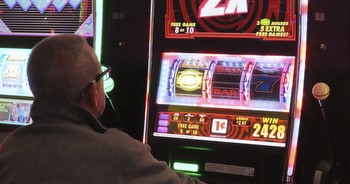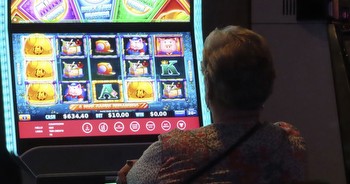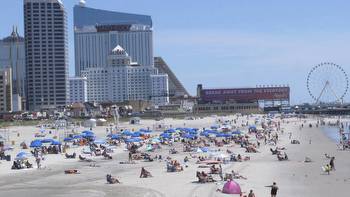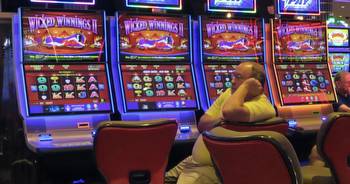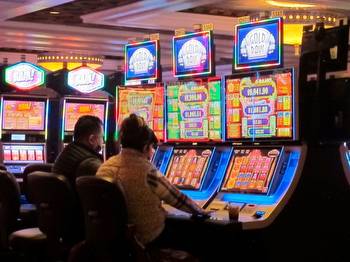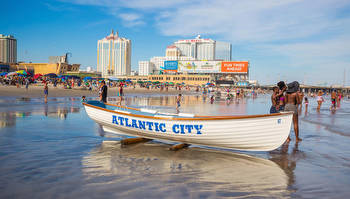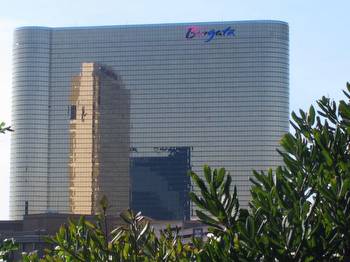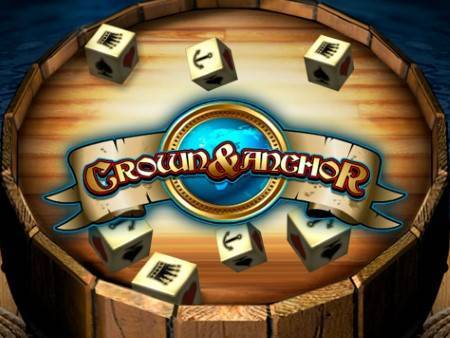Despite growth, Atlantic City's casino industry continues to face challenges

ATLANTIC CITY — Despite surpassing $4 billion in gross gaming revenue for the first time since 2008 this year, the city’s casinos spent much of 2021 digging out from the COVID-19 pandemic and having to deal with an ever-changing gaming landscape.
Last year’s 107-day closure forced many casinos to turn to internet gaming and that trend continued in 2021 as more and more gamblers took to their cellphones, laptops and tablets to play.
“The pandemic continues to have an adverse effect on our business, with land-based casino win down 5.5% for the year through November, and while online gaming revenue continues to see significant growth with third-party operators acquiring much of that market-share, it has provided another taxable revenue source to the city and state,” said Joe Lupo, president of the Casino Association of New Jersey, who also serves as president of Hard Rock Hotel & Casino Atlantic City.
While sports betting and online gambling have more than filled the gap, casino executives say such revenue must be shared among technology and sports book partners, and is not solely for the casinos to keep. The incredible growth of internet gaming and sports gaming was evident in September when New Jersey became the first state to hit $1 billion in sports betting handle.
“New Jersey has always been a strong gaming market,” said Casey Clark, senior vice president of the American Gaming Association, the casino industry’s national trade group, in September. “Crossing the $1 billion handle mark in September is an impressive indicator of the appetite of New Jerseyans and Americans across the country who have embraced legal, regulated sports betting.”
The overall success of the internet and sports betting also comes with some drawbacks, said Tony Marino, a former Atlantic City Expressway executive who now writes a newsletter discussing the city’s tourism and casino trends.
“But the irony is that online gaming threatens in-person activity by suppressing overall visitor volume to the resort which, in turn, negatively affects brick-and-mortar gaming, city and casino restaurants, retail establishments and entertainment venues,” Marino said. “The challenge in 2022 is for the industry to maintain national leadership in digital gaming while marketing Atlantic City as a resort with multiple world-class attractions worthy of in-person visits.”
Through November, seven of the nine casinos showed declines in the amount of in-person money won from gamblers, compared to 2019.
Not counting Hard Rock Casino & Hotel and Ocean Casino Resort, which posted gains, the other seven casinos are down 22% in the amount won from on-premises gamblers.
The drop in land-based gaming revenue helped contribute to state lawmakers approving an amendment to a casino payment in lieu of tax agreement.
Outgoing state Senate President Steve Sweeney said that without the agreement four of the city’s casinos would have closed. The Casino Association of New Jersey said in a statement the changes to the plan “will protect thousands of jobs and provide certainty and stability to the market” while helping to improve Atlantic City’s infrastructure and improve safety in the resort.
During the hearings on the amendment, state lawmakers questioned the lack of information and testimony from casino officials. During the hearings, no one representing the Casino Association of New Jersey testified to the need for the amendment.
The changes in the program are intended to help the casinos recover from the coronavirus pandemic by reducing large increases in payments in lieu of property taxes that would take effect if the bill is not passed.
The casinos would still pay more to the city, county and schools next year than this year even if the bill is enacted, but this year’s payments were based on 2020 revenues, which dropped dramatically from 2019 due to the start of the pandemic.
The casinos collectively expect to pay about $10 million to $15 million more next year if the bill passes. Without it, they say, their payments are due to rise by 50%.
Revenue figures reported by the state show the casinos’ overall numbers continuing to rise this year. But the casinos say those figures paint a distorted picture of their true financial condition by including money from internet gambling and sports betting with the money won from in-person gamblers.
Online and sports betting money must be shared with third-party providers like technology platforms and sports books. That is one big reason the bill excludes those two revenue streams — the fastest growing in Atlantic City’s casino industry — from calculations on how much the casinos must pay in lieu of taxes.
Jane Bokunewicz, director of the Lloyd Levenson Institute at Stockton University which studies the Atlantic City casino industry, said 2021 allowed the industry a new opportunity to look at different ways to conduct business.
“The pandemic forced casinos to be creative and they responded successfully which could lead to even more new opportunities,” Bokunewicz said.








